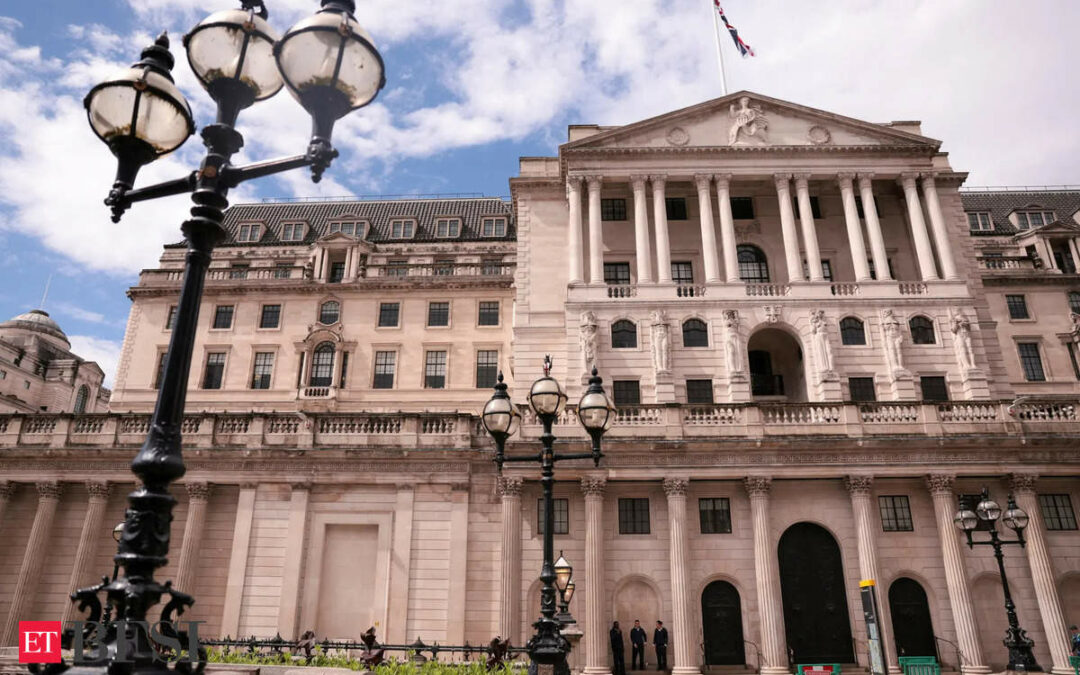LONDON, Sept 19 – The Bank of England held interest rates at 5.0% on Thursday and voted to run down its stock of British government bonds by another 100 billion pounds over the coming 12 months, weighing on the government’s finances.
The Monetary Policy Committee voted 8-1 to keep rates on hold, with only external member Swati Dhingra voting for a further quarter-point rate cut after the BoE last month delivered its first reduction to borrowing costs since 2020.
Economists polled by Reuters had forecast a 7-2 vote to keep rates on hold after last month’s narrow 5-4 decision to cut rates from their previous 16-year high.
On Wednesday, the U.S. Federal Reserve cut interest rates by 0.5 percentage points – a larger-than-expected move that reflected the Fed’s confidence that inflation pressures were cooling.
The BoE struck a more cautious tone on Thursday.
Governor Andrew Bailey said cooling inflation pressure meant the BoE should be able to cut interest rates gradually over the months ahead.
“But it’s vital that inflation stays low, so we need to be careful not to cut too fast or by too much,” he said in a statement.
Investors think the British central bank will cut interest rates at a slower rate than the Fed over the next year, citing more persistent inflation pressure.
The BoE said annual consumer price inflation was likely to rise to around 2.5% by the year’s end from 2.2% in the most recent data, compared with a previous forecast of around 2.75%. Lower oil prices contributed to the reduced inflation forecast.
Investors before Thursday’s decision had priced around five quarter-point reductions in Bank Rate by June 2025 – similar to the outlook for the European Central Bank, although the ECB has already reduced rates twice this year.
By contrast, they see around seven such cuts in the U.S., even after its outsized move on Wednesday.
QT CONTINUES
Keenly anticipated by the bond market, the MPC voted 9-0 to maintain the pace of its quantitative tightening programme in the 12 months starting in October 2024.
QT represents the reversal of hundreds of billions of pounds of British government bond purchases from past attempts to stimulate the economy, by letting these gilts mature but also through active sales.
The 100 billion pound pace of QT over the coming 12 months will be the same as over the past year, in line with market expectations.
Some investors had predicted an acceleration of QT, as the BoE holds 87 billion pounds of gilts that are due to mature naturally over the next year, leaving just 13 billion pounds for active gilt sales at the current pace.
Some lawmakers and think tanks have criticised QT because it brings forward losses sustained by the BoE, which purchased gilts in past years at much higher prices than their current sale value, and which are underwritten by the taxpayer.
The BoE also makes losses from paying interest on the reserves it issued to finance the purchases of gilts, which now far outstrips the returns generated by gilts.
Many economists think Reeves could change Britain’s fiscal rules to exclude the impact of the BoE’s QT programme in her inaugural budget, due on Oct. 30 – something that could give her several billion pounds of extra fiscal space.
The BoE stuck to its view the QT process was proceeding smoothly, with only a “modest” impact on the stance of monetary policy overall.
The BoE repeated that QT was needed to stop an upward ratchet in the size of its bond holding and ensure it could act flexibly in future crises. (Reporting by Andy Bruce and David Milliken) Keywords: BRITAIN BOE/










